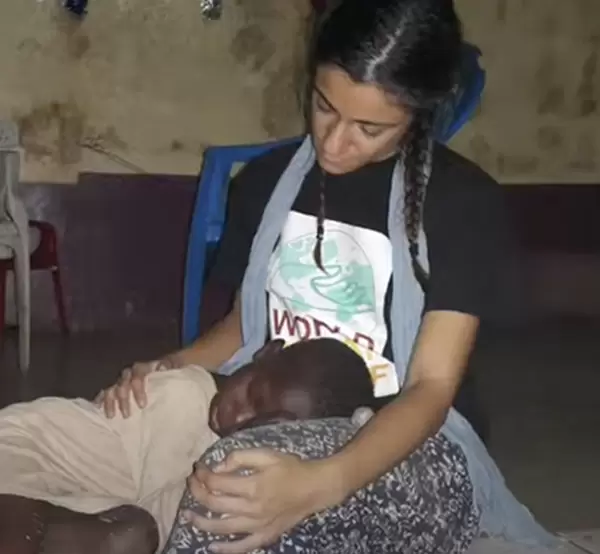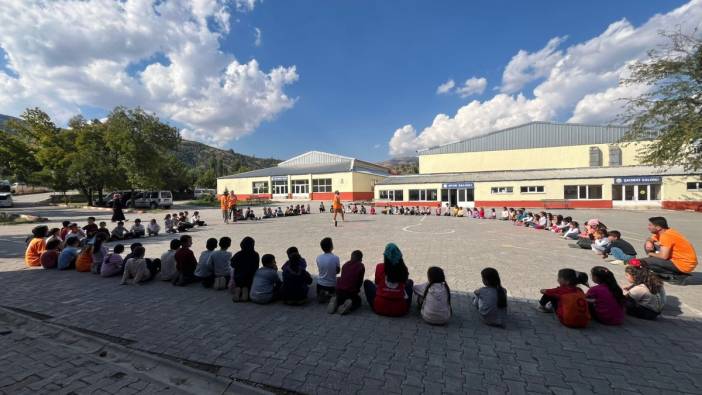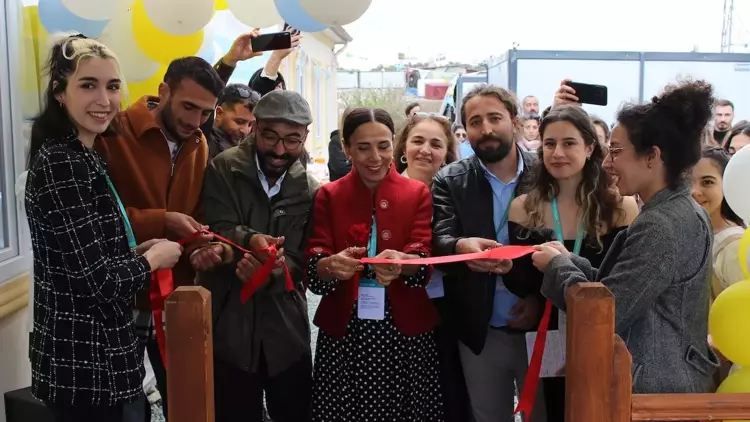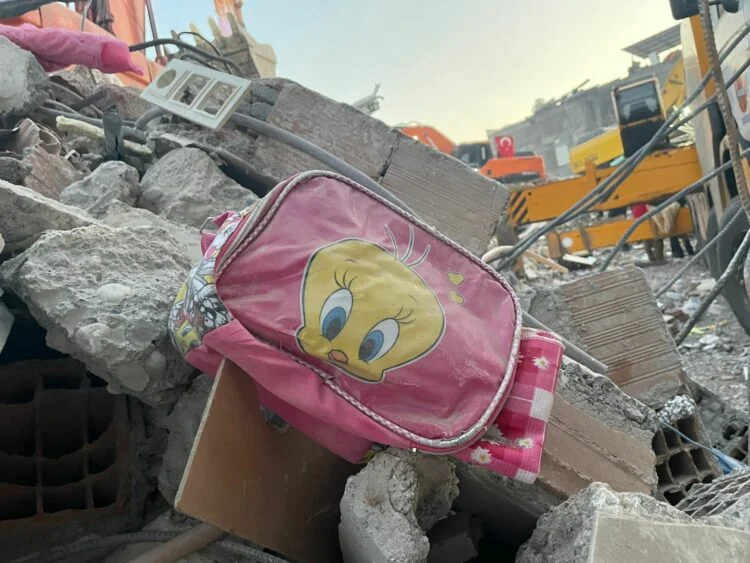
Love and warmth is the best home for everyone!
8 January 2023Ve Zalim Ve Zulum Ve Ölüm: Savaş ve Barış
Ne yazık ki dini, etnik, politik veya bunların kombinasyonu olan sebeplerle ortaya çıkan ulusal veya uluslararası silahlı çatışmaların her bir formunda yine kadınlar ve genç kızlar şiddete maruz kalırlar. Çok üzülerek söylemeliyim ki kadına yönelik şiddetin özellikle tecavüz ve zorla hamileliğin uzunca bir tarihi vardır. Bulgular bize, kadına yönelik şiddetin farklı ırk, kültür, din, ulus ve ideolojilerdeki erkekler tarafından yapıldığını ve kadının insan olarak değil bir nesne, bir ödül ve savaşın bir hatırası olarak görüldüğünü göstermektedir. Birleşmiş Milletlerin (BM) barışı koruma güçlerinde görevli erkeklerin bile bulundukları ülkenin kadınlarına yönelik cinsel saldırılarda bulunduğu bilinmektedir. Yani kadın sadece kendini, bedenini ve ülkesini yok etmeye gelen düşmanının değil, aynı zamanda kendisini korumaya gelen ve barış sözü verenlerin de şiddetine maruz kalmaktadır. 4 Şubat 2009 Radikal Gazetesinde yazmıştım, ‘‘savaşlar, darbeleri sineye çekip sonra etrafa saçanların şiddetidir.’’*
The removal of male members from their families in times of war is also one of the reasons that increase violence against women and girls. Isolated women and girls decide to migrate to another country to defend themselves, but unfortunately, even in refugee camps, they are also abused by those responsible for camp security, soldiers, local men, or other refugee male groups. But the violence doesn’t stop there. As women and children fail to maintain their innocence, they are victimized again by social condemnation and shame. Many unreported incidents of violence in Turkey result from the concealment of victims to protect themselves against family and social exclusion. This secret is not only a cover for lost innocence, but it is also a cover for lost identities and lives. For example, Gaziantep is one of the provinces where child abuse and marriage are most common in Turkey. There is only one reason for this. It is the struggle of 4.5 million Syrians who have fled the Syrian War, which has been going on since 2011, to take refuge in Turkey and to survive by selling their children. The number of men who buy Syrian little girls as second wives in Turkey is substantial.
‘PEOPLE should neither be rich enough to buy others, nor poor enough to sell themselves!” said Jean Jacques Rousseau. But at the same time, people should not be so disgraced as to buy the children of the poor.
1 billion children in the world live in poverty, 300 million children live on the street. 263 million children do not go to school and there are around 250 million child workers between the ages of 5 and 14. The number of children married at an early age is 240 million and 120 million are forced into prostitution. 11% of the world’s population, 820 million, go to bed hungry. The link between poverty/income levels of countries and prostitution of women/men, prostitution and trafficking of women/children is very strong. The poorer a country is, the more women and children of that country are abused. In poor countries, sexual violence against women and children, child marriages, organ sales, women/children trafficking, child pornography/prostitution, unethical advertising, the film industry encouraging prostitution, the colorful tabloid press, and the trade of sex products are very common. Moreover, colonial and ruthless policies have succeeded in legalizing their attempts and expanding the sex industry by transforming prostitution into a structure like “social work” under the name of “Sex Work”. Who wants to be a sex worker? Unfortunately, children and women pay the heaviest price of wars, conflicts, armament, and capitalism. The main reasons for these are traditions, customs, religious beliefs, wars, and migration. In particular, the severe earthquake created by wars and forced migrations irreversibly creates millions of injured people who have neither a past, a future, a birth, a land, a homeland, or a homeland. That’s why two of the cruelest words in our lives are war and migration. All this poverty, misery, homelessness, lack of identity, lack of education, and desperation are due to wars. When we say war, think of the Syrian baby Alan with his tiny body washed up on the shore. Let the rape of women and children come to mind. If there was no war, babies like Alan would be sleeping in their bed, not on the shore; let this come to mind.
Child prostitution and marriages are common in African and Asian countries; they are also common in our country. When you go to the rural areas of Anatolia, it is as if time has never been here. Poverty and deprivation are deep enough to bring tears to your eyes. So much so that an eraser is divided into 10 parts. A pen becomes too small for fingers to hold. A notebook is now too full to fit a word. And pencils get too blunt to sharpen with a sharpener! Child marriages are common because the stricken family’s livelihood relies on the bride price for their daughters.
In 2017, there was a campaign with the name “Child Bride Cannot Be Groom in Turkey!”. When we campaigned, it was unknown how widespread the problem of social violence against children is. Can a society that makes children a glorious bride come out of the darkness? However, the education of a child means the education of a nation. Any country that does not let its children get married is doomed to lose. I come across women, men, and children in Anatolia that would help the country develop rapidly if educational opportunities were provided to them. I believe some policies do not specifically do this because they want to be able to manipulate what is left in the dark.
Maalesef işte bazı çocuklar için hayat biraz kalleş, biraz zalim, biraz da bencil yaşanıyor.
Unfortunately, for some children, life is a little treacherous, a little cruel, and a little selfish. Children do not live the childhood they deserve. Some children could have turned into a sea from a drop but were not given the opportunity, and now they are not.
While building village schools in Mardin, the villagers told me that Zeyno (16 years old) wanted to study very much, that she was very smart but was not sent to school, and now she is a shepherd. I waited for Zeyno in the village until I returned in the evening. Towards evening, a tall, beautiful girl with her flock entered the village. I went to her and said, “Zeyno, they told me that she wanted to read a lot. Do you still want it?” I asked. She looked at me with her pupils in such a way that Zeyno answered my question with her eyes.
In a few days, I convened the family council. After reassuring her family about some issues, Zeyno was allowed to study outside.
It’s been a while. In November 2019, Together We Can Prevent Child Sexual Abuse – We started the #Darklıkarala #Say Something Movement was announced. People from different professions started to join one by one in Turkey’s first movement to prevent child sexual abuse. Among the thousands of people was Zeyno. She was resolutely announcing the movement in her village. I was emotional, I was overwhelmed. A child whose path was cleared became a “Sun”, illuminating the darkness.
In poor and traditional countries, the gender-based division of labor leaves women economically and socially vulnerable to insecurity, “temporary” or “chronic” poverty, and all forms of “sexual violence”. Recently, I was discussing with my students how important it is for girls to be educated and what their contribution to the family and society will be. Every girl educated is one of the most important investments a country will make in the fields of health, development, and peace. However, violence against women and children not only destroys conscious women but also destroys their lives creating undesirable identities as well as creating catastrophic lives. As it causes cultural degeneration, it also begins to threaten religious beliefs. The urgency of protecting our women and children obliges governing states to work on international law, sanctions, and the treatment and support of victims of violence.
When their rights are taken away from them, their lives are stolen from them, and when there are grieving mothers, their children are born from these pains, grow up and draw similar paths. Asian and African countries, including Turkey, put children in a shroud while they live. Tolga Akpınar’s poem “Do you know?” explains this.
Arkasına saklanacağın bir baban, bir korunağın,
ardında güvenerek duracağın bir kayan, bir dağın,
sığınmak için bir adan, bir limanın,
bir dal ki tutunacağın kalmamıştır.
Kalmadıysa, her yer yine böyle ayaz olmuştur.
Sen de üşümüşündür.
Üşüyünce büyümüşündür.
Bilir misin?
Kefenin içinde bir çocuk vardır.
İçinde ölenler vardır…
Poet Ece Ayhan says: “There was nothing I could do, I did my best too. I loved it, that’s all.” That’s all we really need.
Only this. And as soon as the children are born, we need to start teaching these lessons of peace and love.
Let’s not be dead lovers. Let’s not be one of those who show mercy when we die.
Let’s take care of people while living, let’s love people while living.
Let’s invest in life, not death.
By preventing violence, mending the broken ones, making peace and solidarity…



